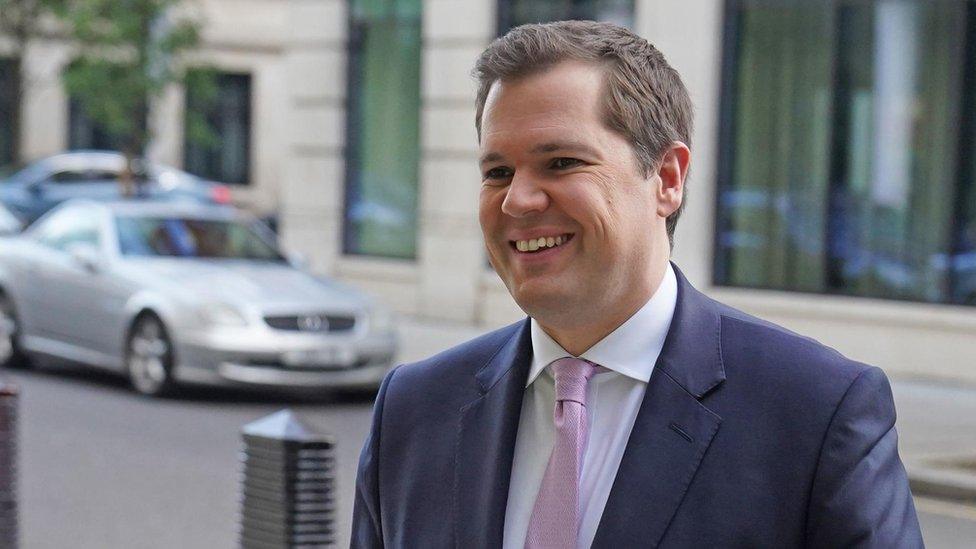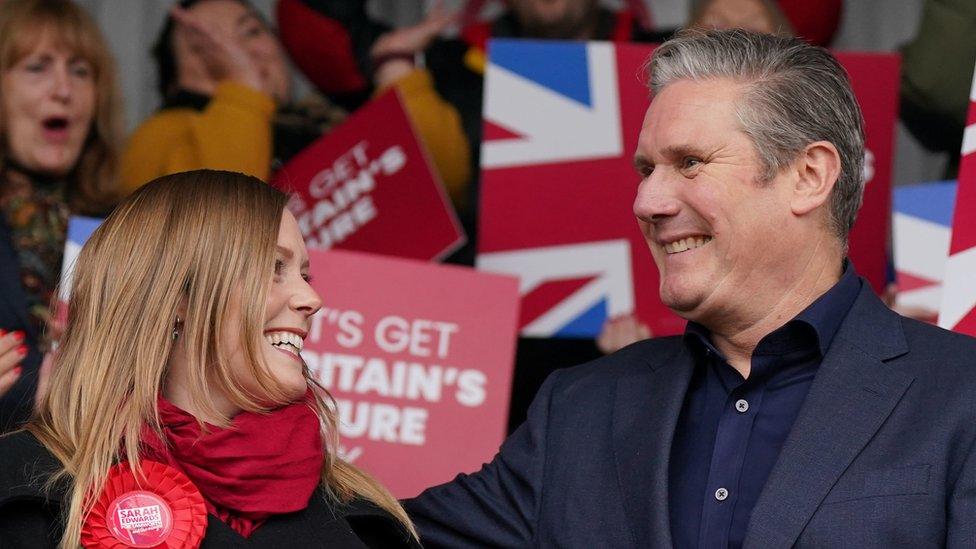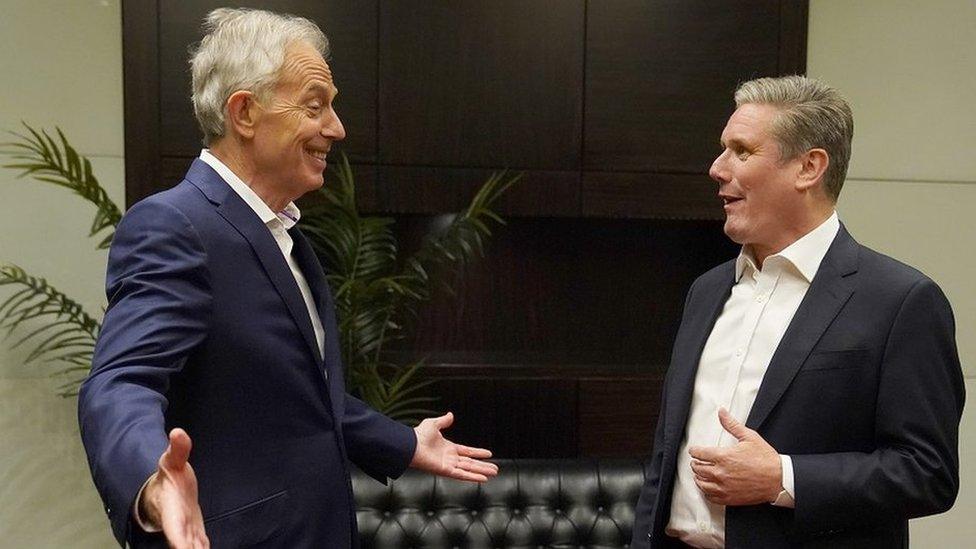Tax cuts will be considered if inflation falls, cabinet minister says
- Published
- comments

Immigration minister Robert Jenrick said he felt the government had the "right priorities"
Rishi Sunak's government will consider tax cuts if it can meet its target of halving inflation by the end of the year, a Tory cabinet minister has said.
Robert Jenrick said the PM had the "right priorities" after his party suffered two heavy by-election losses.
There is disquiet over the results among Tory MPs, with some calling for tax cuts to shore up support.
But Mr Jenrick told discontented MPs in his party they "shouldn't read too much" into the by-election defeats.
When asked if the government was listening to those voices, the immigration minister told the BBC he understood Conservatives and the public "all want to cut taxes".
"But the first task has got to be bearing down on inflation," Mr Jenrick told the Sunday with Laura Kuenssberg programme.
Describing inflation - the rate at which prices rise - as a "great evil", Mr Jenrick said "if we can get that under control" then "of course we will consider what more we should do" on taxes.
Tax levels in the UK are at their highest since records began 70 years ago and are unlikely to come down soon, a leading think tank, the Institute for Fiscal Studies, said last month.
In January, Mr Sunak said halving inflation by the end of 2023 was one of the government's five key pledges.
Inflation was at 10.7% in the three-month period between October and December 2022, which means the government aims to reduce inflation to 5.3%.
The latest figures, published this week, showed the UK's overall rate of inflation held steady at 6.7%, ending a run of three consecutive monthly falls.
But the Bank of England has previously predicted inflation will drop to 5% by the end of 2023.
This week, the Bank of England governor, Andrew Bailey, said he expected a "noticeable drop" in inflation when October's figures are published next month.
The government has limited tools to reduce inflation. The Bank of England says raising interest rates, which it controls independently, is the best way to make sure inflation comes down.
But with a general election expected next year, Tory MPs would like to see the government do more to ease the financial burdens on households.
Their party is reeling after losing what were two safe seats to Labour in Mid Bedfordshire and Tamworth.
After overturning huge Conservative majorities in those constituencies, Labour leader Sir Keir Starmer said he felt his party could win anywhere in the UK.
Mr Sunak said the by-election results were "obviously disappointing", but some Tory MPs were more downcast.
"When we've got such a high tax burden people will just wonder what's the point of voting Conservative," one former Tory minister told the BBC, in the wake of the defeats.
The MP said that in order to get Conservative voters to the polling booth, the government needed to take action, such as slashing corporation tax.
The Conservative MP Craig Tracey, who helped run the by-election in Tamworth, said he felt too much focus was on rhetoric, rather than action.
"People need to feel better now," the MP said.
The MP suggested cutting income tax or national insurance would be the best way to do this, adding: "The thing they [voters] need to see is an immediate impact on their bottom line."
Former Prime Minister Liz Truss and her allies are among Tory MPs who have called for tax cuts.
Last month at the Conservative Party conference, Mr Sunak said he wanted to cut taxes but declined to say whether he would before the next general election - which is expected next year.
A few days before the party conference, Chancellor Jeremy Hunt - who will set out his economic plans in his Autumn Statement in November - said tax cuts were "virtually impossible" at present, given the state of the public finances.
Related topics
- Published20 October 2023

- Published20 October 2023

